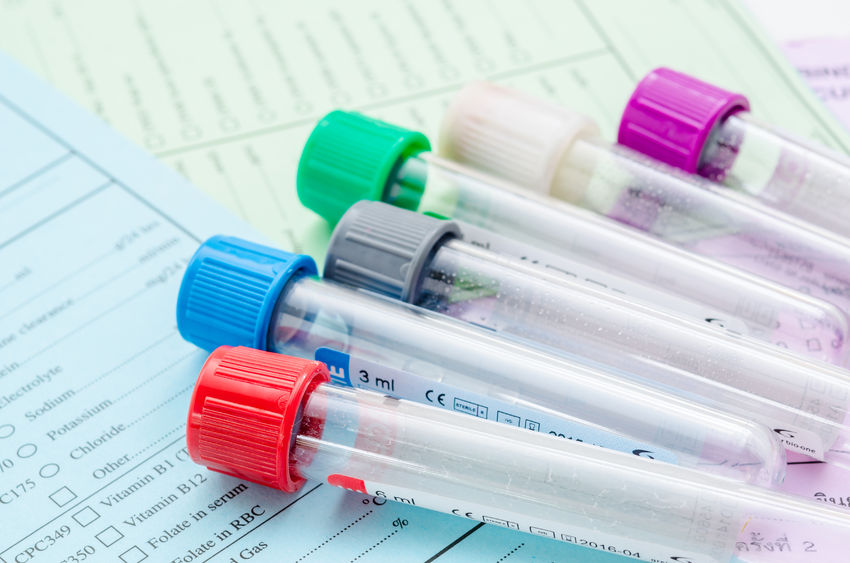
RBC Count
Also known as Red Blood Cells Count Automated BloodWhat is this test?
Erythrocyte Count (RBC) measures the number of red blood cells in the blood. Red blood cells contain a complex protein called hemoglobin. It carries oxygen to the body's organs and tissues from the lungs. Therefore, the number of red blood cells in the blood and how well they work determines by calculating how much oxygen is being transported to the body tissues.
Why this test is performed?
This test may also be performed as part of a complete blood count test panel to monitor the overall health of an individual. Your doctor may advise you to undergo this test if you have any conditions such as anemia, polycythemia or any other disease conditions that affect the red blood cells levels in the blood. Your doctor may advise you to do this test if you exhibit signs or symptoms of low oxygen in blood such as bluish discoloration of the skin, restlessness, irregular breathing, or confusion etc. You may be advised to undergo this test if you are pregnant or if you have a family history of anemia, blood loss after surgery, or suffering from heavy and prolonged menstrual bleeding, etc.
If you have a family history of anemia, your doctor may ask you to perform this test on a 6-monthly basis or a yearly basis. Anemic patients should perform this test on a regular basis, as instructed by the healthcare provider.
Also known as RBC Test, Red Blood Cells Count, Red Cells Count.
Test Preparation
Inform your doctor if you are on any medications, have any allergies or underlying medical conditions before your RBC Count. Your doctor will give specific instructions depending on your condition on how to prepare for RBC Count.
No specific preparation is necessary for this test. However, if it is performed along with other blood tests, you may need to fast (not eat or drink) for several hours.
Understanding your test results
If the test result falls in the normal reference range, generally no medical intervention is necessary.
A lower than normal erythrocyte count indicates that the number of red blood cells in blood is low. The major cause of low red blood cells in blood is anemia. The symptoms of anemia are a headache, weakness, dizziness, chest pain, shortness of breath, pale skin, cold hands, and feet etc. The other reasons for low red blood cells in blood are a certain type of cancers such as leukemia, lymphoma, or multiple myeloma; thyroid disorders, chronic kidney diseases, acute or chronic bleeding from the stomach or colon, bone marrow failure, red blood cell destruction, erythropoietin deficiency, or malnutrition. Deficiency of iron, vitamin B-12, and folic acid; recent blood donations; heavy prolonged menstrual bleeding, etc. may also result in low levels of red blood cells. There are few medications that may lower the RBC count are chloramphenicol, hydantoins, quinidine, and chemotherapy medicines.
A higher than normal erythrocyte count indicates that the number of red blood cells in blood is high. This is may be due to a condition called polycythemia, a condition where the bone marrow produces too many red blood cells. The symptoms of polycythemia are a headache, tiredness, blurred or double vision, shortness of breath, flushed skin, itching, or sweating etc. Medical conditions such as heart or lung diseases, dehydration (due to severe diarrhea, excessive vomiting) etc. may result in higher levels of red blood cells in the blood. Another reason for high RBC count can be due to low oxygen levels in the blood. Low oxygen levels in the blood can be due to heart diseases, lung diseases like a chronic obstructive pulmonary disease, or interrupted breathing during sleep. Individuals staying at higher altitudes, undergoing strenuous exercise, or individuals who are heavy smokers etc. may also have low oxygen levels in the blood.
If you have higher or lower than normal levels of red blood cells, consult your doctor for further instructions. Based on the test results, your doctor may advise appropriate medical treatments, lifestyle modifications, or further diagnostic tests.
| Gender | Age groups | Value |
| MALE | All age groups | 4.32-5.72 million/mcL |
| FEMALE | All age groups | 3.9-5.03 million/mcL |

